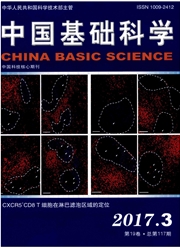

 中文摘要:
中文摘要:
化石资源的不可再生性及其大量使用所造成的环境污染问题,使得发展可再生能源成为必然。纤维素作为自然界中最丰富的生物质资源,其催化转化制能源化学品是学术界的研究热点。本文介绍了我们关于纤维素高选择性一步转化制乙二醇新反应途径的研究。该工作以廉价的碳化钨,特别是镍促进的碳化钨为催化剂,在一定的反应温度和水相氢气氛条件下,成功实现纤维素转化率100%,乙二醇收率高达61%。乙二醇是重要的大宗能源化学品,工业生产高度依赖于石油乙烯资源。纤维素催化转化制乙二醇新反应途径的发现,开辟了一条新的利用可再生资源进行“生物炼制”的绿色路线,具有重要的学术意义和现实意义。
 英文摘要:
英文摘要:
The deminishing reserves of fossil resources and the environmental issues caused by the consumption of fossil resources have made it necessary to develop other renewable resources for production of energy and chemicals. Cellulose, the richest biomass in nature, is now being regarded as one of the best renewable resource for production of energy and chemicals. Recently, we had made breakthrough in the direct catalytic conversion of cellulose. Using cheap tungsten carbide and Ni-promoted tungsten carbide as the catalyst, we realized the conversion of cellulose into ethylene glycol with a high yield (the yield of ethylene glycol is up to 61% ). Ethylene glycol is one of the most industrially important chemicals, and its production is highly dependent on petroleum. Apparently, our findings exploited a new and green approach towards the production of ethylene glycol from renewable resources, and were therefore important both in academic and industrial societies.
 同期刊论文项目
同期刊论文项目
 同项目期刊论文
同项目期刊论文
 期刊信息
期刊信息
